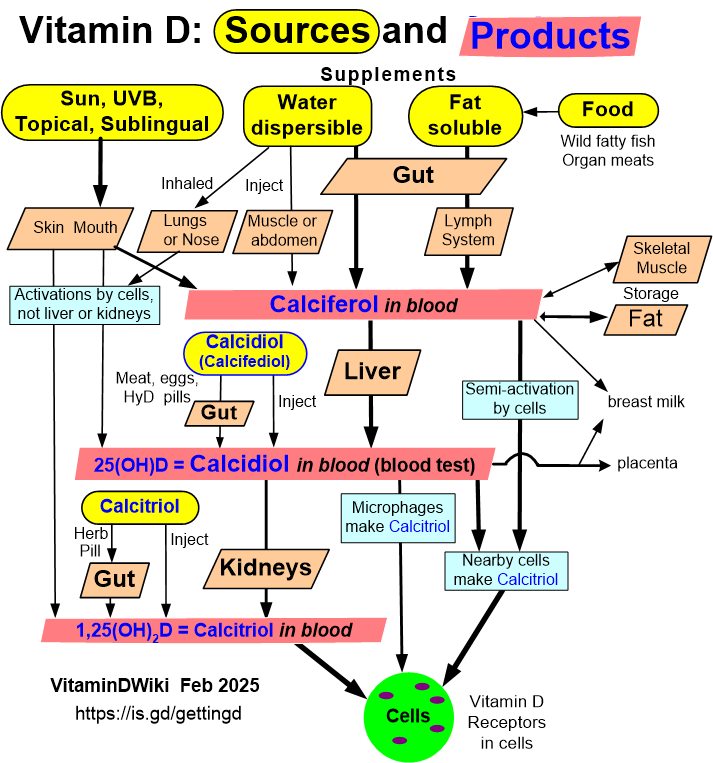Intestines do not process active vitamin D as well as you age
AGE-RELATED CHANGES IN THE RESPONSE OF INTESTINAL CELLS TO 1?,25(OH)(2)-VITAMIN D(3).
Ageing Res Rev. 2012 Jun 13.
Pardo VG, Boland AR [email protected]
Departamento de Biología, Bioquímica y Farmacia. Universidad Nacional del Sur. Consejo Nacional de Investigaciones Científicas y Técnicas (CONICET) 8000 Bahía Blanca, Argentina.
The hormonally active form of vitamin D(3), 1?,25(OH)(2)-Vitamin D(3), acts in intestine, its major target tissue, where its actions are of regulatory and developmental importance: regulation of intracellular calcium through modulation of second messengers and activation of mitogenic cascades leading to cell proliferation.
Several causes have been postulated to modify the hormone response in intestinal cells with ageing, among them,
alterations of Vitamin D receptor (VDR) levels and binding sites,
reduced expression of G-proteins and
hormone signal transduction changes.
The current review summarizes the actual knowledge regarding the molecular and biochemical basis of age-impaired 1?,25(OH)(2)-Vitamin D(3) receptor-mediated signaling in intestinal cells. A fundamental understanding why the hormone functions are impaired with age will enhance our knowlegde of its importance in intestinal cell physiology.
Copyright © 2012. Published by Elsevier B.V.
PMID: 22706185
Publisher wants $36 for the PDF, but also available at DeepDive__
This is ACTIVE vitamin D, which has been processed by a Kidney (human or animal)
See also Vitamin D Life
800 IU vitamin D in capsule form (but not drops) helped nursing home residents – Sept 2014
Calcitriol category listing has items along with related searches has the following chart

